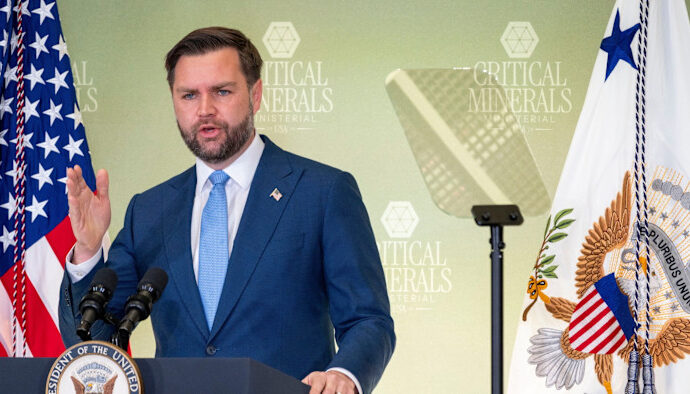Receive free US-China relations updates
We’ll send you a myFT Daily Digest email rounding up the latest US-China relations news every morning.
US commerce secretary Gina Raimondo has warned that American companies are beginning to see China as “uninvestable”, calling on Beijing to act to reduce the risk of doing business in the country.
Speaking on the third day of a four-day visit to China, during which she met Chinese leaders including second-ranked official Premier Li Qiang, Raimondo said her trip had reopened communication channels between the world’s two largest economies.
But she said US companies needed results on issues ranging from “traditional” problems such as intellectual property theft and state enterprise subsidies to new areas including fines and raids on offices without due process, revisions to counter-espionage laws, and unclear data and privacy rules.
“Increasingly, I hear from businesses China is uninvestable because it’s become too risky,” Raimondo told reporters. “Actions speak louder than words . . . but I hope that this becomes a moment where we start to see action.”
China has raided the offices of several US-based consultancies this year, detaining local employees of due diligence firm Mintz Group over what it said were national security concerns.
Raimondo told Li earlier on Tuesday that the US did not want to decouple from the world’s second-largest economy and instead hoped to expand trade.
Her trip follows recent visits by secretary of state Antony Blinken and Treasury secretary Janet Yellen, as the US and China seek to stabilise bilateral relations.
Raimondo also met China’s economic policy chief, He Lifeng, and culture and tourism minister Hu Heping on Tuesday, while on Monday she met commerce minister Wang Wentao.
China is seeking to reinvigorate foreign investment amid a deep property market downturn and falling exports that have stunted its post-pandemic economic recovery.
On Monday, Raimondo announced a number of new formal channels of bilateral communication, including on export controls and commercial issues.
On Tuesday, US and Chinese officials began the new dialogue on export controls, which Washington has described as “a platform to reduce misunderstanding of US national security policies”.
China’s commerce ministry said the talks would serve to “exchange information related to export control, in accordance with their respective laws”.
President Joe Biden this month announced an executive order banning some US investment into China’s quantum computing, advanced chip and artificial intelligence sectors in order to stop the Chinese military from accessing American technology and capital.
China, for its part, has announced curbs on the export of gallium and germanium — used in chipmaking — and the use of Micron Technology products in its critical infrastructure.
Raimondo said she had raised the controls on Micron, saying that unlike US export restrictions, China’s action was not transparent.
“There’s been no rational given around what’s happened to Micron,” she said. “What there’s no place for is arbitrary rules, lack of due process, lack of clarity, lack of rule of law, that’s an unlevel playing field . . . and we’re going to stand up to them when they do that.”
China’s state-owned news agency Xinhua quoted Li as telling Raimondo the two sides should strengthen mutually beneficial co-operation and reduce confrontation.
“Politicising economic and trade issues and overstretching the concept of security will not only seriously affect bilateral relations and mutual trust, but also undermine the interests of enterprises and people of the two countries, and will have a disastrous impact on the global economy,” Xinhua quoted Li as saying.
Raimondo said she raised with Chinese leaders the possibility of co-operation to set “guardrails” on AI.
“The world expects our two countries to work together to keep a lid on the most destructive applications of artificial intelligence and that was met with some receptivity,” she said.
Raimondo and Chinese tourism minister Hu agreed to hold a tourism conference in China in the first half of next year in an effort to revive travel between the two countries that was curtailed during the pandemic.


